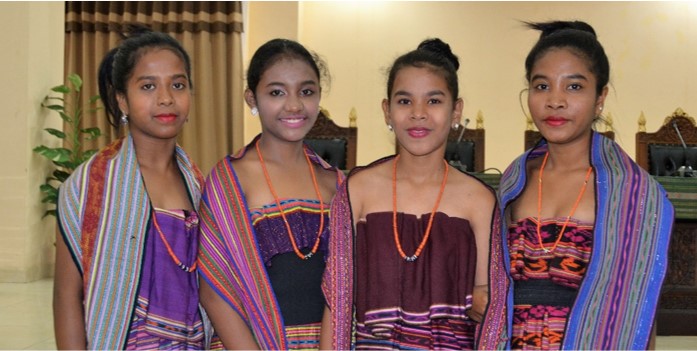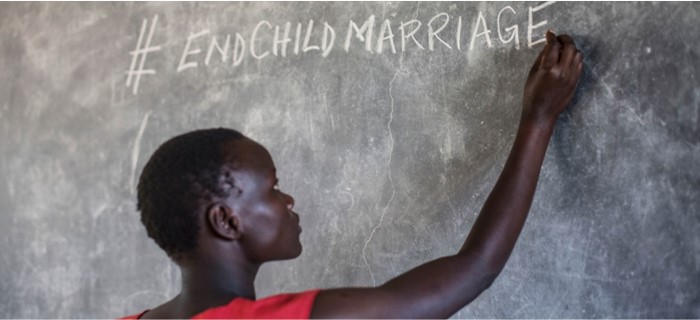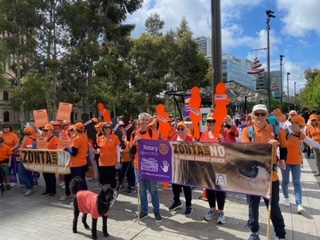Zonta International is passionate about providing life-changing opportunities for women and girls through international service. By partnering with agencies of the United Nations and other recognized non-governmental organizations, Zonta has improved women’s health, provided better economic opportunities and prevented gender-based violence in 66 countries. Since our first service project, Zonta has contributed more than US$32.7 million to our international service projects.
The four Zonta International projects for the 2020-2022 Biennium are:
Adolescent Girls’ Health and Protection in Peru

Adolescents are defined in Peru as the ages of 12 to 17 make up 11.2% of the population. Significant inequities based on gender, age, geographic location, ethnicity and income persist for many Peruvian adolescents.
Considered neither children nor adults, adolescents – particularly girls – must have opportunities to speak up for their rights and develop the self confidence and autonomy to take control of the lives and bodies.
The Adolescent Girls’ Health and Protection project will contribute to guaranteeing the rights of indigenous and rural adolescents, especially girls, and respond to their needs by preventing pregnancy, addressing mental health concerns and providing a protective environment from violence by providing quality, gender-sensitive, and culturally adapted health, education and protection services.
Zonta International has committed US$1 million to UNICEF to improve the capacity of services to respond to the health needs of adolescents, – especially girls – in a timely manner and prevent violence in schools in the regions of Huancavelica and Ucayali.
Strengthening Response to Gender-Based Violence Survivors in Papua New Guinea and Timor Leste

Gender-based violence (GBV) is an umbrella term for any harmful act that is perpetrated against a person’s will and that is based on socially ascribed differences between males and females. It includes acts that inflict physical, sexual and mental harm or suffering, threats of such acts, coercion and other deprivation of liberty.
Despite growing awareness of GBV as a life-threatening violation of human rights, poor quality of services and lack of coordination among multiple response sectors have been a major impediment for effective response to GBV in Asia and the Pacific region.
Strengthening National Capacities of Health Sector in Papua New Guinea (PNG) and Timor-Leste to Deliver Survivor-Centred Response to Gender-Based Violence Survivors focuses on two countries in the region with the highest level of lifetime prevalence of intimate partner violence–PNG (68%) and Timor-Leste (59%). This initiative builds on the strong global and regional evidence base on what works for effective response to GBV.
Zonta International has committed US$1 million to UNFPA to ensure that all women and girls in Papua New Guinea and Timor-Leste live life free from violence and that those women and girls who experience violence can access quality services essential to their long-term recovery.
Let us Learn Madagascar

In Madagascar, one in four children aged 6–10 does not attend primary school and one in three children aged 11–14 does not attend lower secondary school. Let Us Learn is an integrated education program creating opportunities for vulnerable and excluded children, particularly girls, in Madagascar to realise their right to an education in a secure and protective environment.
By providing vulnerable girls with opportunities to realise their right to an education in a secure and protective environment, Let Us Learn aims to reduce poverty and ultimately empower Madagascar’s next generation of female leaders. The program will be implemented in the Androy and Atsimo Andrefana regions and will support children as they transition from primary to lower secondary school.
This is an integrated education program creating opportunities for vulnerable and excluded children, particularly girls. The project is focused on reaching out-of-school children, expanding girls’ education and improving quality outcomes for learners.
From 2016 through 2020 Zonta International contributed US$2 million to UNICEF to support this project and in 2020 announced an additional commitment of US$500,000 to support Phase III.
Ending Child Marriage

Globally, 21% of girls are married before they turn 18, robbing them of their childhood. Each year, another 12 million girls under the age of 18 are married around the world.
Child marriage is globally recognized as a harmful practice and a human rights violation. However, despite laws against it, the practice remains widespread and can be found in cultures, religions, ethnicities and countries around the world. Ending child marriage requires addressing, over a period of time, the complex sociocultural and structural factors underpinning the practice.
This project was designed to address the issue over a 15-year period from 2015 through 2030. During this time, the priority remains on engaging adolescent girls as key agents of change in the following 12 countries with high prevalence of child marriage: Bangladesh, Burkina Faso, Ethiopia, Ghana, India, Mozambique, Nepal, Niger, Sierra Leone, Uganda, Yemen and Zambia.
Zonta has supported ending child marriage since 2014, contributing US$2 million to delay early marriage in Niger from 2014-2018. From 2018-2020, Zonta contributed US$2 million to the UNFPA-UNICEF Global Programme to End Child Marriage – the first private-sector donor to the Global Programme. In 2020, Zonta International announced an additional commitment of US$1,500,000 to UNICEF to support Phase II through to 2022.
Further information on all of these projects can be found by visiting www.zonta.org/ISP
